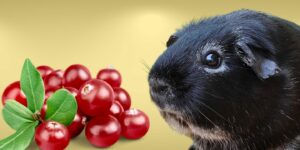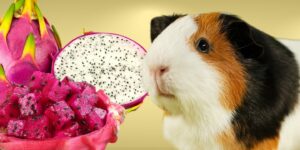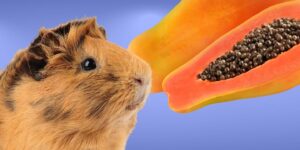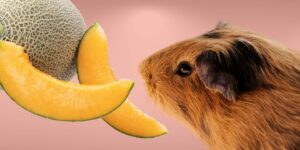Yes, Guinea pigs can eat fruit as part of a healthy and balanced diet. However, it is important to keep in mind that fruit should only be given to Guinea pigs in small amounts, as it is high in sugar and can cause gastrointestinal problems if fed in excess. In this article, we will discuss the benefits and potential risks of feeding fruit to Guinea pigs, along with providing a list of appropriate fruits and serving sizes.
Benefits of Adding Fruit to a Guinea Pig's Diet
Vitamin C
Fruits are a good source of vitamin C, an essential nutrient for Guinea pigs, as they are unable to produce it themselves. A lack of vitamin C can lead to scurvy, a painful and potentially fatal condition.
Antioxidants
Fruits provide antioxidants, which can help protect Guinea pigs from cellular damage and promote overall good health.
Dietary Variety
Adding fruit to a Guinea pig's diet can provide variety and prevent them from becoming bored with their food.
Mental Stimulation
Offering different types of fruit can keep Guinea pigs mentally stimulated and encourage natural foraging behaviors.
Types of Fruit Guinea Pigs Can Eat
Apples
Serving Size and Preparation
Apples are a good choice for Guinea pigs, but make sure to remove seeds and pits, as they can be harmful if ingested. A small slice or two is an appropriate serving size.
Bananas
Serving Size and Preparation
Guinea pigs can eat small amounts of banana, but since it is higher in sugar, limit servings to a few thin slices.
Berries
Types of Berries
Strawberries
Blueberries
Raspberries
Guinea pigs can enjoy these berries in moderation, as they provide vitamins and antioxidants.
Serving Size and Preparation
A serving of berries for a Guinea pig would be 1-2 small berries or a few pieces of a larger berry.
Melons
Types of Melons
Watermelon
Cantaloupe
Honeydew
Melons can be a refreshing treat for Guinea pigs, especially in warm weather.
Serving Size and Preparation
Offer small pieces of melon, ensuring seeds are removed before serving.
Pears
Serving Size and Preparation
Pears are suitable for Guinea pigs, but they should be offered in small amounts due to their sugar content. A small, seedless slice is appropriate.
Other Fruits
Kiwi
Papaya
Pineapple
These fruits can also be given to Guinea pigs in moderation, with a serving size consisting of a small piece or two.
Fruits to Avoid
Citrus Fruits
Reasons to Avoid
Citrus fruits like oranges, lemons, and limes should be avoided due to their high acidity, which can cause stomach upset in Guinea pigs.
Grapes and Raisins
Reasons to Avoid
Grapes and raisins should not be given to Guinea pigs, as they can be toxic and cause kidney damage.
Avocado
Reasons to Avoid
Avocado is dangerous for Guinea pigs due to its high fat content and the presence of persin, a compound that can be toxic to them.
How Much Fruit Should Guinea Pigs Eat?
Age and Size Considerations
Younger and smaller Guinea pigs will require less fruit than older and larger ones. A good rule of thumb is a small piece of fruit—about the size of a cherry—per day for adult Guinea pigs.
Introducing New Fruits
Introduce new fruits gradually to allow your Guinea pig's digestive system time to adjust, and monitor for any adverse effects.
Conclusion
In conclusion, Guinea pigs can eat fruit as part of a healthy and balanced diet, but it should be given in moderation. By following the guidelines outlined in this article, you can ensure that your Guinea pig receives the nutrients it needs while avoiding any potential digestive issues.











